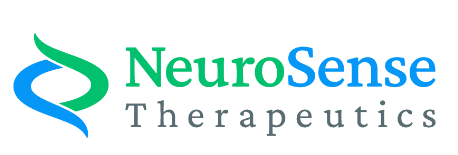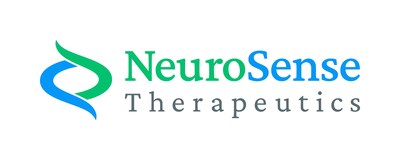- A statistically significant, 37.4% difference (P=0.03), slowing of disease progression in ALSFRS-R, in patients treated with PrimeC compared to placebo, in the pre-specified Per Protocol (PP) population analysis
- Neurofilament biomarker results from Biogen collaboration expected in January 2024
- Primary biomarker endpoints, TDP-43 and Prostagladin2, are expected in H1 2024
- PrimeC's meaningful effect magnitude, strong safety profile, and unique mechanism of action will be discussed with the FDA and other regulatory agencies in an End of Phase 2 meeting in H1 2024
CAMBRIDGE, Mass., Dec. 14, 2023 /PRNewswire/ -- NeuroSense Therapeutics Ltd. (Nasdaq: NRSN) ("NeuroSense"), a company developing treatments for severe neurodegenerative diseases, today reported additional positive efficacy data from further evaluation of its Phase 2b trial (PARADIGM) with NeuroSense's lead drug candidate for amyotrophic lateral sclerosis ("ALS"), PrimeC.
Evaluation of the pre-specified Per Protocol (PP) population analysis of the recent top-line results from PARADIGM revealed a statistically significant slowing of disease progression with a 37.4% (p=0.03) difference in the gold standard ALS tracking measure, the ALS Functional Rating Scale-Revised ("ALSFRS-R"), in favor of PrimeC vs placebo, and 17.2% (p=0.39) difference in Slow Vital Capacity ("SVC"), in favor of PrimeC vs placebo. The PP analysis population includes all participants who adhered to the trial protocol and treatment plan without any major protocol deviations. The goal of a PP analysis in clinical trials is to assess the efficacy of a treatment under optimal conditions, thereby providing a clearer understanding of how well the treatment works when implemented as intended, contributing to a more comprehensive view of the trial results. PARADIGM's PP population analysis is pre-defined in the trial's statistical analysis plan, which includes 62 patients (43 active and 19 placebo) compared to 68 patients in the Intent to Treat (ITT) population (45 active and 23 placebo).
PARADIGM is a prospective, multinational, randomized, double-blind, placebo-controlled Phase 2b (NCT05357950) clinical trial. The trial's primary endpoints include: safety and tolerability, and ALS-related biomarkers TDP-43 and Prostagladin2. The trial's secondary endpoints include: clinical efficacy outcome measures, ALSFRS-R and SVC. ALSFRS-R is the most widely used ALS tracking tool accepted by the FDA, utilized by neurologists treating ALS patients, in clinical trials, and by other regulators to determine disease progression. It tracks 12 changes in a person's physical abilities over time including functions such as: speech, walking, climbing stairs, dressing/hygiene, handwriting, turning in bed, cutting food, salivation, swallowing, and breathing. SVC is a measurement of respiratory function.
While PARADIGM is powered to demonstrate statistically significant changes in the trial's primary endpoints, the highly favorable clinical results seen in the PP analysis achieved an unexpected statistical significance.
The new data reported today comes on the heels of recent positive top-line safety and efficacy data of PARADIGM announced by NeuroSense. An analysis of the ITT top-line data from the 6-month double-blind segment of the trial showed clinically meaningful signs of efficacy with a 29% difference in ALSFRS-R (p=0.12) and a 13% difference in SVC (p=0.5), both in favor of PrimeC vs placebo. These data include all 68 people living with ALS enrolled in Canada, Italy, and Israel, with the exclusion of one patient who was misdiagnosed. Most patients enrolled in both the active and placebo arms of trial were concurrently treated with Riluzole, the ALS standard of care medication, indicating PrimeC slowed disease progression well beyond the level afforded by the FDA approved ALS drug.
In addition, the trial met its primary endpoint of safety and tolerability with results comparable to placebo, establishing a solid safety profile for PrimeC. 96% of the trial participants who completed the 6-month double-blind portion of the trial chose to receive treatment with PrimeC through a 12-month open label extension. Furthermore, to date, all participants that completed the 18-month trial treatment duration requested to continue taking PrimeC, which is provided to them via an Investigator Initiated Trial.
NeuroSense expects to report results from a strategic collaboration with Biogen in January 2024, evaluating the impact of PrimeC on neurofilament levels in participants enrolled in PARADIGM. Upon receipt of results, Biogen has the right of first refusal to co-develop/ commercialize PrimeC for the treatment of ALS for a limited time following the results. The Company expects to report primary biomarker endpoints of ALS hallmarks TDP-43 and Prostagladin2, to evaluate PrimeC's biological activity and target engagement, in the first half of 2024 following the completion of the analysis of participants' plasma.
An End of Phase 2 meeting with the FDA and a Scientific Advice meeting with European Medicines Agency (EMA) to discuss these results and to determine the best path forward for PrimeC's development is expected in the first half of 2024.
"As we analyze the PARADIGM trial results, we continue to gain a better understanding of PrimeC's potential to render a significant and meaningful clinical benefit to people living with ALS. Today we are eager to share these new data with the ALS community, as we believe the PP analysis, demonstrating a statistically significant 37.4% difference in ALSFRS-R in patients treated with PrimeC vs. placebo, is an exceptional result," stated Alon Ben-Noon, NeuroSense's CEO. "This data, in conjunction with hopefully correlative neurofilament readouts, will create a regulatory opportunity to advance PrimeC's development in a breakthrough manner toward the market."
About ALS
Amyotrophic lateral sclerosis ("ALS") is an incurable neurodegenerative disease that causes complete paralysis and death within 2-5 years from diagnosis. Every year, more than 5,000 patients are diagnosed with ALS in the U.S. alone, with an annual disease burden of $1 billion. The number of patients with ALS is expected to grow by 24% by 2040 in the U.S. and EU.
About PrimeC
PrimeC, NeuroSense's lead drug candidate, is a novel extended-release oral formulation composed of a unique fixed-dose combination of two FDA-approved drugs: ciprofloxacin and celecoxib. PrimeC is designed to synergistically target several key mechanisms of ALS that contribute to motor neuron degeneration, inflammation, iron accumulation and impaired ribonucleic acid ("RNA") regulation to potentially inhibit the progression of ALS. NeuroSense completed the 6-month double-blind portion of its Phase 2b ALS clinical trial which met its safety and tolerability endpoints, as well as showing a statistically significant slowing of disease progression in the pre-specified Per Protocol (PP) population. Additional data from the Phase 2b trial are expected H1 2024. PrimeC was granted Orphan Drug Designation by the U.S. Food and Drug Administration and the European Medicines Agency.
About NeuroSense
NeuroSense Therapeutics, Ltd. is a clinical-stage biotechnology company focused on discovering and developing treatments for patients suffering from debilitating neurodegenerative diseases. NeuroSense believes that these diseases, which include amyotrophic lateral sclerosis (ALS), Alzheimer's disease and Parkinson's disease, among others, represent one of the most significant unmet medical needs of our time, with limited effective therapeutic options available for patients to date. Due to the complexity of neurodegenerative diseases and based on strong scientific research on a large panel of related biomarkers, NeuroSense's strategy is to develop combined therapies targeting multiple pathways associated with these diseases.
For additional information, we invite you to visit our website and follow us on LinkedIn and X (Twitter).
Forward-Looking Statements
This press release contains "forward-looking statements" that are subject to substantial risks and uncertainties. All statements, other than statements of historical fact, contained in this press release are forward-looking statements. Forward-looking statements contained in this press release may be identified by the use of words such as "anticipate," "believe," "contemplate," "could," "estimate," "expect," "intend," "seek," "may," "might," "plan," "potential," "predict," "project," "target," "aim," "should," "will" "would," or the negative of these words or other similar expressions, although not all forward-looking statements contain these words. Forward-looking statements are based on NeuroSense Therapeutics' current expectations and are subject to inherent uncertainties, risks and assumptions that are difficult to predict and include statements regarding PrimeC as a potential treatment for people with ALS, the timing for release of additional results from PARADIGM clinical trial, and other regulatory milestones, the timing for release of results from the Company's strategic collaboration with Biogen, the cash runway of the Company, the timing of a Phase 2 trial for Alzheimer's disease and patient enrollment regarding a Phase 3 pivotal ALS trial of PrimeC. Further, certain forward-looking statements are based on assumptions as to future events that may not prove to be accurate. The future events and trends may not occur and actual results could differ materially and adversely from those anticipated or implied in the forward looking statements. These risks include unexpected R&D costs or operating expenses, a delay in the reporting of additional results from PARADIGM clinical trial, a delay in the reporting of results from the Company's strategic collaboration with Biogen, the timing of expected regulatory and business milestones, risks associated with meeting with the FDA to determine the best path forward following the results from PARADIGM clinical trial, including a delay in any such meeting, a delay in patient enrollment for a Phase 2 trial for Alzheimer's disease or its planned Phase 3 pivotal ALS trial of PrimeC; the potential for PrimeC to safely and effectively target ALS; preclinical and clinical data for PrimeC; the uncertainty regarding outcomes and the timing of current and future clinical trials; timing for reporting data; the development and commercial potential of any product candidates of the company; and other risks and uncertainties set forth in NeuroSense's filings with the Securities and Exchange Commission (SEC). You should not rely on these statements as representing our views in the future. More information about the risks and uncertainties affecting the Company is contained under the heading "Risk Factors" in the Annual Report on Form 20-F filed with the Securities and Exchange Commission on March 22, 2023 and the Company's subsequent filings with the SEC. Forward-looking statements contained in this announcement are made as of this date, and NeuroSense Therapeutics Ltd. undertakes no duty to update such information except as required under applicable law.
Logo - https://mma.prnewswire.com/media/1707291/NeuroSense_Therapeutics_Logo.jpg
SOURCE NeuroSense



